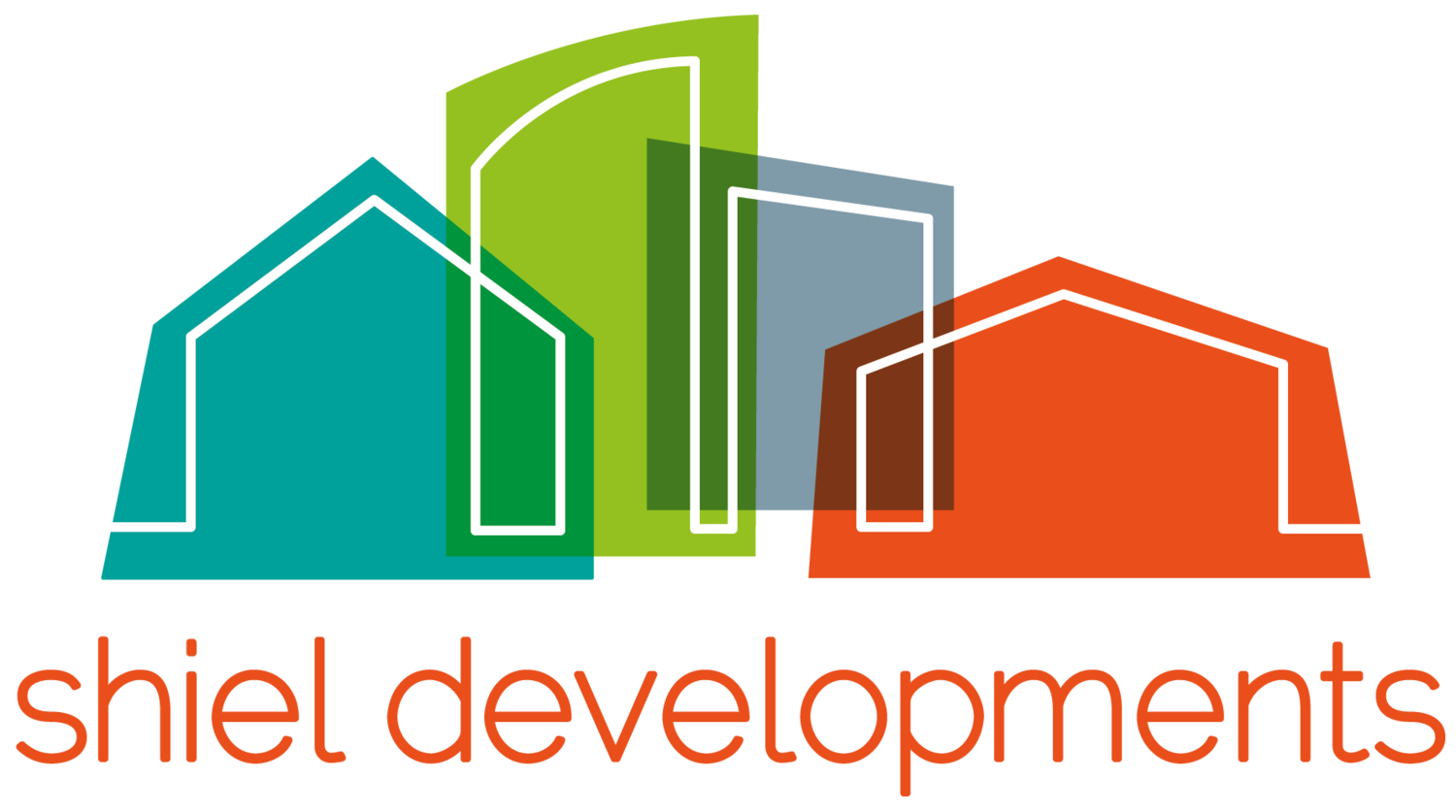To make a home sustainable, cheaper to run and longer-lasting, it’s important to make the right choices from the start. Timber frame is the traditional option, but that doesn’t always mean it’s the best. Insulated Concrete Formwork (ICF) is stronger, more energy-efficient and longer-lasting, yet many homeowners aren’t even offered it as an option.
At Shiel Developments, we’ve worked with both timber frame and ICF and we know which one delivers better results.
What’s the difference?
Timber frame: A house is built using a wooden structural frame, often with panels filled with insulation.
ICF (Insulated Concrete Formwork): Hollow blocks made of insulation are stacked, reinforced and filled with concrete, creating a strong, airtight and highly insulated structure.
Both methods have their place, but ICF outperforms timber frame in almost every way.
Strength and Durability
Timber frame homes rely on a lightweight wooden structure, making them more vulnerable to movement, warping and water damage over time. ICF homes have a solid concrete core, meaning stronger walls, better soundproofing and longer-lasting structures.
Verdict: ICF is stronger, more durable and requires less long-term maintenance.
Energy Efficiency
Timber frame homes rely on layers of insulation that can settle or degrade over time, reducing their efficiency. ICF walls trap heat inside during winter and keep homes cool in summer, significantly lowering heating costs.
Verdict: ICF delivers better insulation and lower running costs.
Fire and Moisture Resistance
Timber is naturally flammable and, while treated wood can slow fire spread, it still doesn’t match ICF’s fire resistance. Timber also absorbs moisture, leading to potential rot, mould and structural weakening over time. ICF is non-combustible, water-resistant and doesn’t suffer from mould or rot issues.
Verdict: ICF is safer and requires less maintenance over time.
Construction Speed
Timber frame homes are often prefabricated, meaning they can be built quickly. ICF takes slightly longer to construct but saves time in the long run because it requires less finishing work and fewer post-build adjustments.
Verdict: Timber frame is faster in the short term, but ICF saves time (and money) over the lifespan of the home.
Long-Term Costs
Timber frame homes might seem cheaper upfront, but they often need more repairs, insulation top-ups and maintenance over time. ICF has a higher initial cost, but the energy savings, lower maintenance and increased lifespan make it the cheaper option in the long run.
Verdict: ICF is the better investment over time.
Why isn’t everyone using ICF?
If ICF is so good, why hasn’t it replaced timber frame across the industry? The answer is simple: tradition and resistance to change.
Lenders and insurers still favour timber frame because it’s what they’re familiar with. Many builders stick with timber frame because it’s what they’ve always done, rather than looking at better alternatives. Additionally, ICF requires specialist knowledge, meaning not every builder can offer it.
But that’s changing. More and more homeowners are choosing ICF for its efficiency, strength and long-term value.
Our recommendation
We build with ICF wherever possible because it delivers better homes that are stronger, more comfortable and cheaper to run.
If you’re planning a new build or renovation, it’s worth considering why your builder is recommending timber frame; is it the best choice, or just the most familiar?
Thinking about building a home? We’d love to talk you through your options.
About Shiel Developments
Shiel Developments is a bespoke luxury home builder in Northamptonshire and Cambridgeshire, known for high-quality craftsmanship, sustainable design and expert project management.
We build homes that work in real life, not just on paper. With our specialist knowledge of ICF construction, we help homeowners create properties that are stronger, more energy-efficient and cost-effective to run. Whether you’re planning a new build, renovation or heritage conversion, we make sure every home is built to last.

